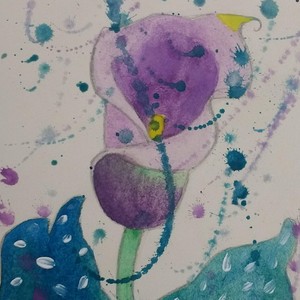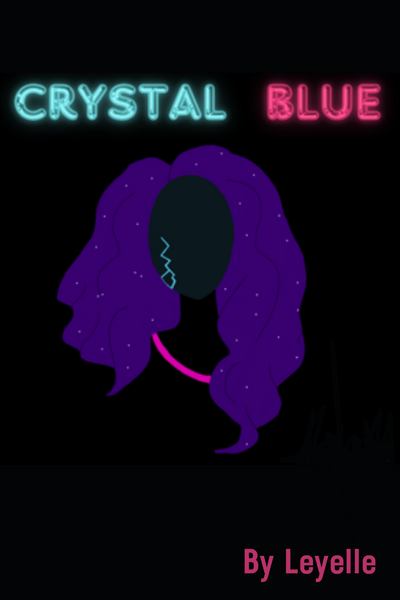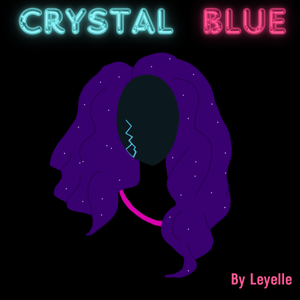Judith’s Folder
Note: Alcott has told me like three times that I’m not supposed to make copies of these documents but who cares what Alcott says? (Yes, I am signing these, Judith C. Antos. If lost, and then found again by someone else, this contraband belongs to me.)
***
File #1: Compiled by Hera Bassos
Circa 1000 AD. From the region of Alsace-Lorraine.
Translated from the Hahl (Old Phantish.)
Title: Unknown
(Sanctuary specialists and renowned linguists have spent nearly a decade attempting to decipher several fragments they believe to be part of the tale’s titular page. Unfortunately, the writing is all waterstained and difficult to translate. The current working title is “The Prince and the Giant” but there is that curious irregularity about the writer’s chosen tense of the word ‘giant.’)
***
Long ago, before the singing lakes sunk into the earth and the mute lakes replaced them there stood a radiant kingdom on the shores of Lake Lalahm (Referencing Lord Wayden’s Old Phantish Index for translation, Section #5, old Phantish geographical names, the word ‘Lalahm’ refers to deep spring of fresh water.)
(Judith’s note: Hard to believe people used to think this was just an imaginary language made up by some old kook with too much time on his hands.)
The kingdom was called Shehnyli (translation a little muddy, some linguists believe it means ‘shining’ or ‘bright’) because every traveler who found themselves within the walls of the kingdom said that its splendor was like ‘streams of water glistening in the afternoon sun.’
(Judith’s note: Ask Mora about Shehnyli (sometime later, after her recovery.) Her grandmother still spoke Hahl. She might know.)
The Kingdom of Shehnyli was a beautiful, peaceful country full of rivers, music, gold, and white stones. (The linguists are saying that these stones were probably diamonds. Maybe pearls. Maybe the people of Shehnyli just liked white stones and didn’t care whether or not they were worth anything.)
Then one day the giant came. (see endnote 1.)
One evening during the harvest time, as the men and women and all their children were at work in the gardens and fields, a horrible shadow passed over the kingdom and drenched it in darkness.
Every citizen trembled in fear to see the wicked giant flying into the kingdom on the wings of a burning cloud, scorching the walls of every house and setting carts and carriages ablaze as he made his way to the city square cracking the very stones of the street under his weight with every step.
Before the sun had even set in the Kingdom that night, the giant had looted every house and emptied all the palace treasuries of their gold and silver. Then, heavy laden with his plunder, the giant disappeared into the forest outside of the city's south gate and made his way to the great cave in the side of the king’s mountain where no man ever dared roam.
Devastated by the destruction the giant had caused, the king called together all of his knights and bade them ride out in groups of ten and fifteen to find and slay the horrible creature that had ravaged their fair kingdom, but not one amongst all of his men would go.
Finally, not knowing what else to do, the king’s eldest son, the crown prince, said that he would go after the giant.
Taking nothing with him but his horse, his sword, and his shield, the prince rode out from the gates of the kingdom that same night, promising his father that he would return in one month’s time with sure proof that the giant was dead, or else they would know that the prince had been slain.
For three days and nights, the prince rode through the great forest of the Yehdtch (translation unclear: some say the word means ‘growing’ others claim it translates to ‘immortal’) and toward the giant’s mountain.
By the third night, the trees of the great forest were so thick around the narrow path the prince rode that barely a droplet of sunlight could make its way through the dense leaves of the canopy, and the prince had to dismount and lead his horse by the light of a lantern until they came to The Sleeper’s Clearing.
Greatly tired, despite his best attempts to keep watch, the prince fell into a deep slumber.
It was the footsteps, a sound like the rustling of dry leaves, that woke him, and when the prince looked up, he saw the beautiful Yehdtch flower staring at him. (see endnote 2.)
“Why do you wander here?” The magnificent flower asked the prince, and for a moment, he was too speechless to reply.
“I’m on my way to the mountain,” he said after a moment’s silence, “to slay or be slain by the wicked giant that destroyed my father’s kingdom.”
At those words, the flower made a soft sound as if she were in pain, and to the prince’s
astonishment, she took a small dagger from her bodice and cut off a single braid of her long dark hair.
“Keep this woven into your hair,” the flower told the prince, “And you will survive your fight with the giant.”
***
Hera’s note:
Remaining fragments lost and scrambled.
Unclear whether the prince ever defeated the giant. Unclear why the forest was called ‘Yehdtch’ and the clearing was referred to as “The Sleepers Clearing.” Unclear whether the prince ever made it back to his kingdom and returned the stolen treasure.
Fragments of stories following a similar premise which Sanctuary archaeologists found in the ‘fairy box’ of the Rhine suggest that the prince vanished into the woods with the Yehdtch flower and was never seen again. Some versions, however, speak of a long-lost treasure being miraculously restored to a kingdom by a ‘little sea’ sometime after the prince’s disappearance. The use of the word flower is what really bewilders historians, doubtful why a prince would have some sort of forbidden elopement with blossom.
End Note (Judith’s Additions):
#1
The tense of the word ‘giant’ used here is unclear to the linguists, but Hermione Rayford tells me it could also be translated as a ‘snake’.
#2
One of the new eggs said something about an immortal flower, but she stopped talking when she realized I was listening.
***
Judith’s Note: Alcott says if I make any more copies he’ll have to report me but he won’t do it because I’d report him right back. Making copies of the files isn’t exactly criminal, just ill-advised. What he tried to do to Mora is category 3. Considering her age at the time of the conduct breach, it could be considered category 5, “Royal Purple.”
***
File #2: Compiled (and translated) by Eustacia Lowell
***
Circa 60 BCE: From the region of Burgundy, France.
Translated from the Hahl (Old Phantish) with traces of something akin to Middle French.
Title: Fourth Fragment
This piece is believed to be one of the many fragments from ‘The Epic of Maliyehl.’ (Referencing Lord Wayden’s Old Phantish Index for translation, Section #5, old Phantish biographical names, the word ‘Maliyehl’ means ‘child with scales.’)
The epic details the long journey of the fisherman’s son Maliyehl who is lost at sea and ends up traveling the world and going on many adventures as he tries to find his way home. Historians believe this epic was a kind of family tradition, handed down from mother to daughter and father to son, with a new adventure added on to the tale by each descendant as they came of age (See endnote #2)
***
Furious, the king ordered that the two flowers be burned to death. They were bound with ropes and carried out to the barren clearing by a dozen of the king's guards, who cut their hair to shame them and lit them ablaze. All night the fire burned so brightly that the flames could be seen from every window in the wicked king’s palace, but the flowers stood bravely, hand in hand. In the morning the flowers were found by their friend the fisherman, unconscious, scorched, and dazed by the smoke, but still alive.
Eustacia’s note: There seems to be a clear connection between these unusual flowers and nearly 28% of all phant tales. 112 tales revolving around phants of other kinds bear some mention of the Yehdtch flowers, and 300 other unique tales have been found which refer to similar creatures, without reference to any other breed of phant. Is there such a thing as a walking flower? Is it safe to assume that these creatures are some sort of phant?
Endnote (Judith’s additions)
#1
Mora says her grandmother had a friend who was known as an ‘immortal flower’ but she’s not exactly sure why. Maybe because they were nearly 80 years old and still looked like they were just barely out of their teens.
#2
I think it’s a code.
***
Details:
File code: 1JA-Th3#oard
Class 3: Classified. Do not open.
If found please return to the library of Judith C. Antos. A.K.A. ‘The Hoard.”











Comments (0)
See all